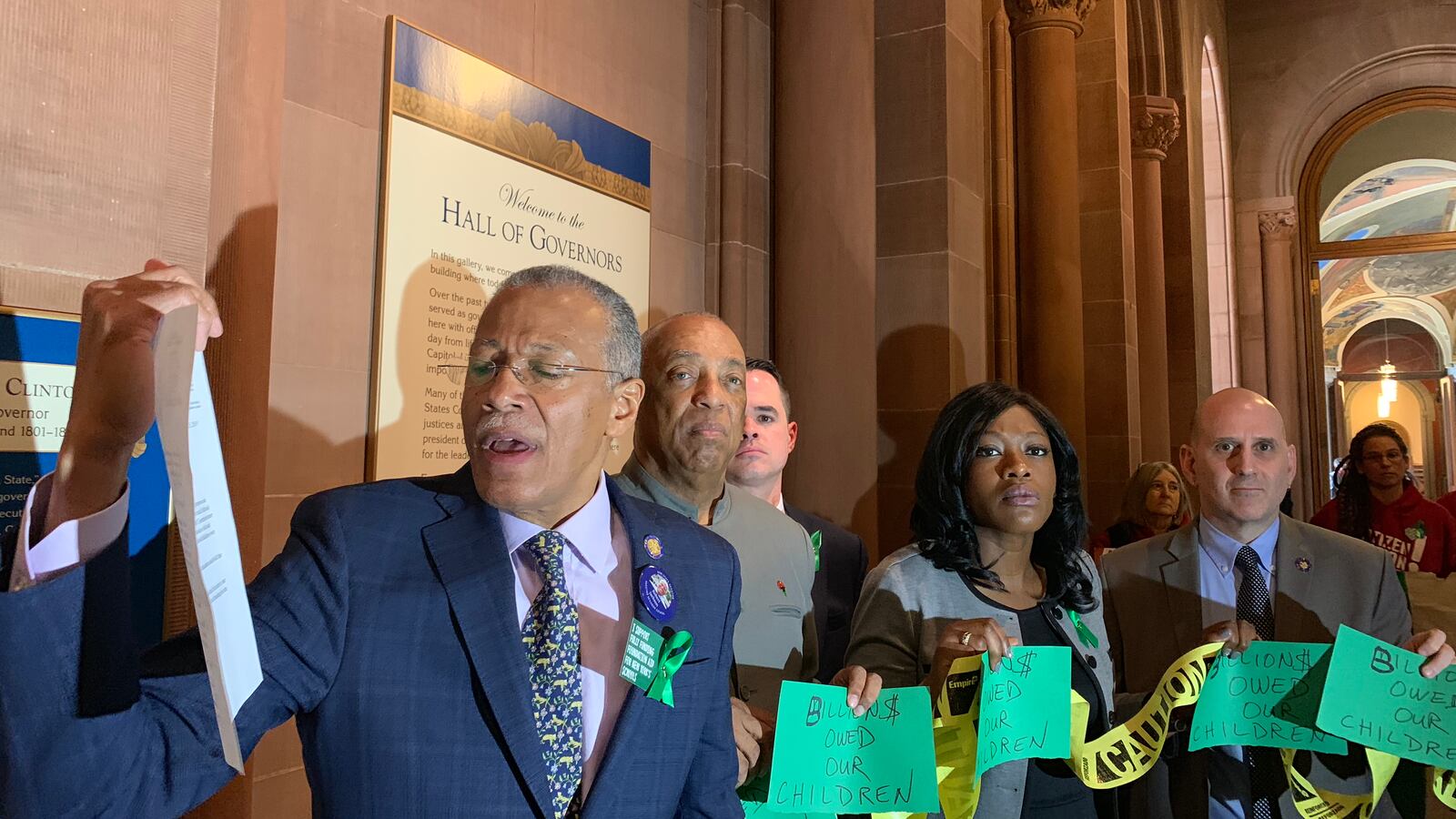As New York lawmakers approach their deadline to pass a state budget plan, two major education items hang in the balance for New York City: how much money the state will give to school districts, and whether lawmakers will extend mayoral control.
While it seems likely that Mayor Bill de Blasio will retain control of schools through the end of his term in 2022 — possibly with some caveats — it’s still unclear how much education funding the governor, the Senate, and the Assembly will agree to distribute throughout the state. They have until April 1 to come to a number in negotiations.
The governor has proposed a total $27.7 billion for education, which is $955 million more than districts received this fiscal year. Cuomo’s proposal would send $11.2 billion to New York City, but according to de Blasio, that’s about $300 million less than city schools need for the next fiscal year.
Foundation aid, a formula that directs extra dollars to high-needs districts, including New York City, is where the biggest fight is. Cuomo is proposing a $338 million increase to foundation aid, while senators and members of the Assembly want to boost foundation aid by $1.2 billion and have been pushing for that throughout the session during rallies and in speeches. Members of both houses and advocacy group Alliance for Quality Education held a rally outside of the governor’s office on Thursday, urging him to meet their demands.
Late Thursday night, the Buffalo News said a tentative agreement had been reached to include $618 million in additional foundation aid, citing multiple sources, but that figure could change as overall negotiations continue.
On Friday afternoon, Democratic Sen. Shelley Mayer, who oversees the Senate’s education committee, would not comment on whether there was an agreement for $618 million, but said, “My position is, we need more foundation aid. I hope we can get it. I believe there’s conversations ongoing.”
Cuomo’s administration has gotten into numerous arguments over foundation aid with advocates who want to boost it. The formula was created as a result of a yearslong lawsuit, which the governor argues has long been settled and is a “ghost of the past.” But advocates say the settlement doesn’t matter, and the formula was created to be fully satisfied but never was.
State education policymakers have expressed concerns about Cuomo’s proposed budget. The Board of Regents has requested $1.6 billion in foundation aid.
The state is expecting to pull in $2.3 billion less in revenue next fiscal year, largely due to federal tax laws, Cuomo has said, and that puts financial pressure on the budget.
Cuomo also proposed a new formula that would restrict how districts distribute dollars to individual schools, asserting that districts are not directing money properly to the schools that need it the most. That idea has drawn backlash from Elia and New York City Chancellor Richard Carranza, who said the formula would force the city to spend 75 percent of new dollars next year on just 22 percent of city schools if Cuomo’s budget proposal was adopted as is.
There were no clear signs Friday afternoon that an agreement on Cuomo’s funding formula would be in the final budget draft.
Mayoral control of New York City’s schools, which expires on June 30, is expected to get extended by the budget deadline, but there’s still an open question of whether it will come with tweaks to encourage more parent engagement.
De Blasio visited Albany this week, and had apparently met with the Assembly’s Black and Latino caucus, according to NY1 reporter Zack Fink.
In an interview Wednesday, Queens Democratic Sen. John Liu, who oversees the Senate’s New York City education committee, asserted that no final deal was on the table, and that if mayoral control is extended by April 1, “parental input will be vastly expanded.”
Earlier this month, Liu’s committee held a hearing over mayoral control — which Liu and Manhattan Sen. Robert Jackson prefer to call “mayoral accountability.” There, parents and advocates described feeling powerless when navigating the city’s school system and asked for tweaks in the governance structure, such as giving City Council more oversight and giving community education councils more power over the hiring of school and district leaders. (Still, some community leaders supported extending mayoral control as is).
De Blasio has committed multiple times to increasing parent involvement, but it’s not clear what that will look like in a final deal.
While a three-year extension is on the table, Jackson said he expects tweaks related to the Panel for Educational Policy.
“Based on everything I know it will probably get done in the budget, but if not we’ll get it done period,” Jackson said on Thursday. “Bottom line is, we have to continuously improve what we’re doing.”

